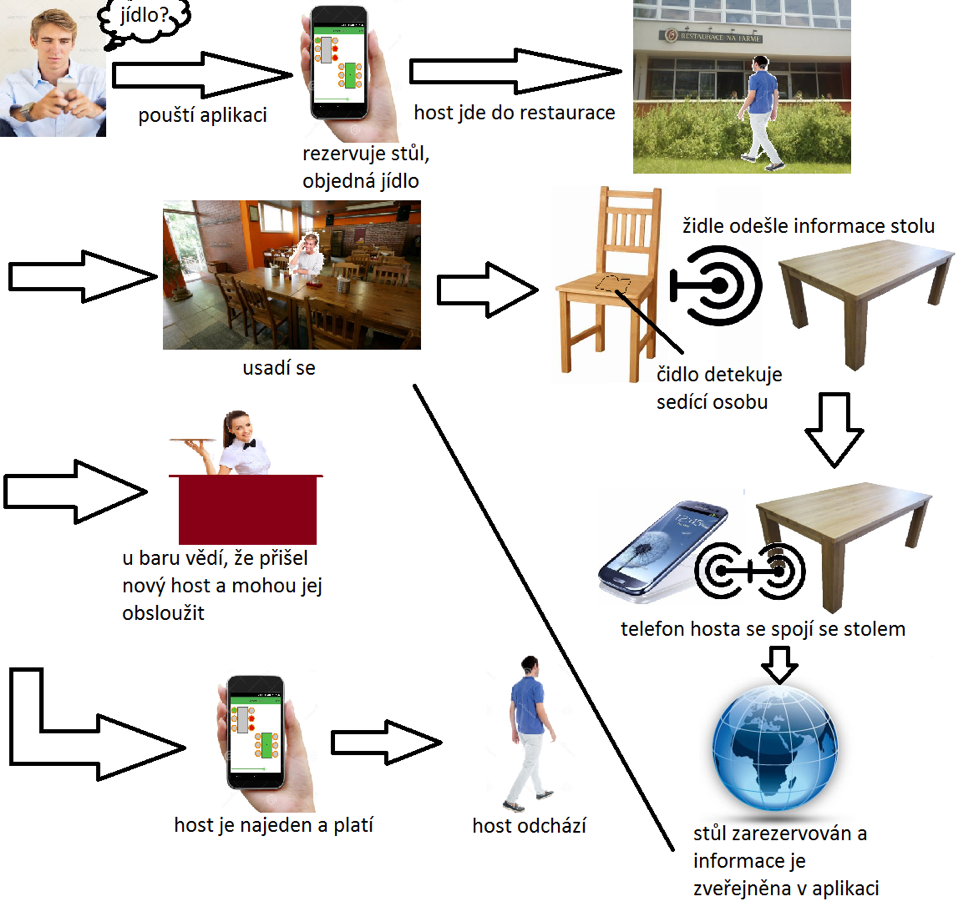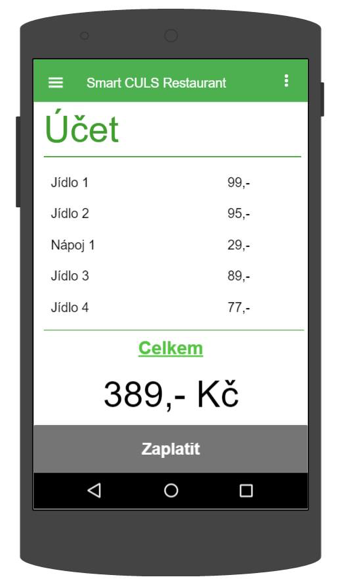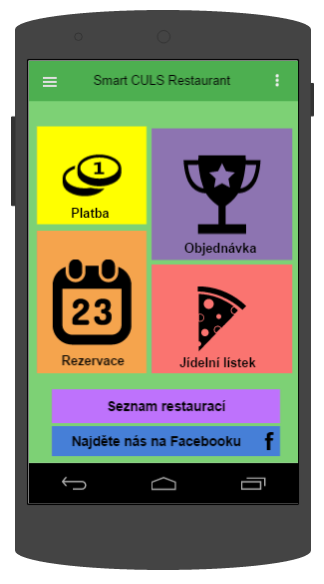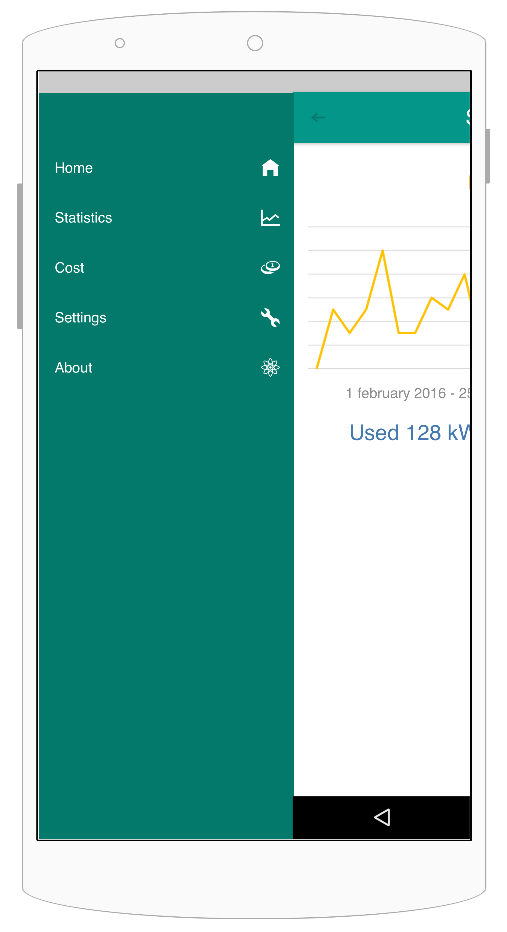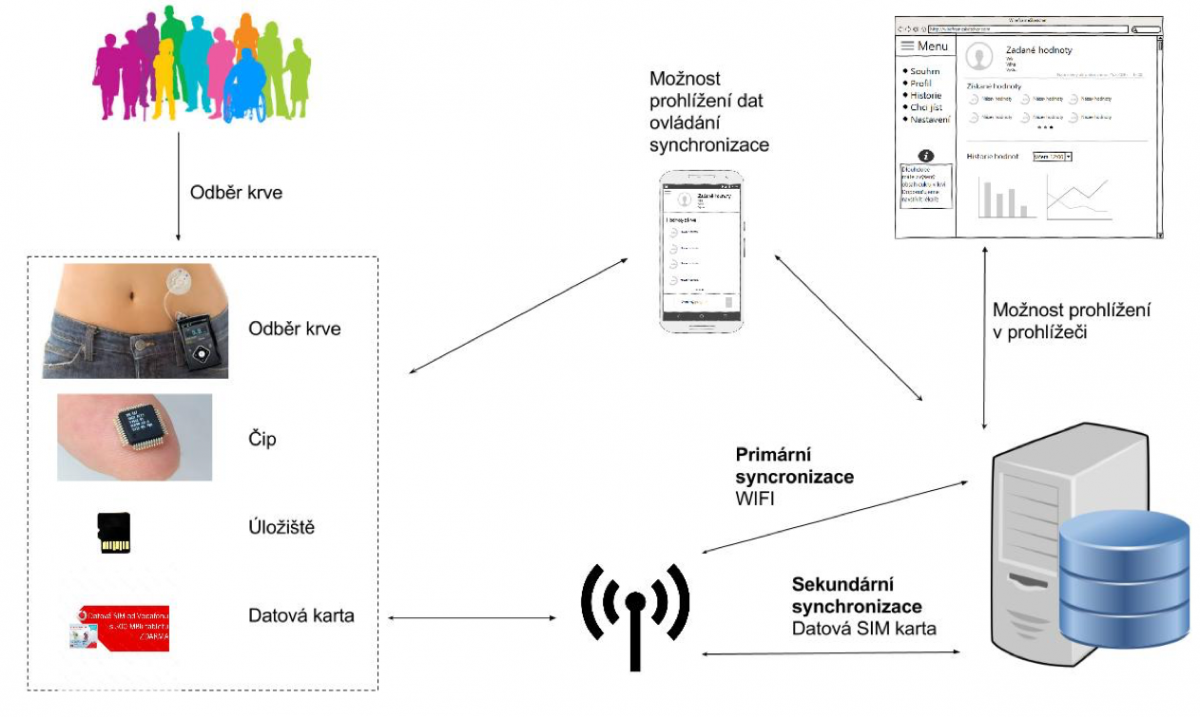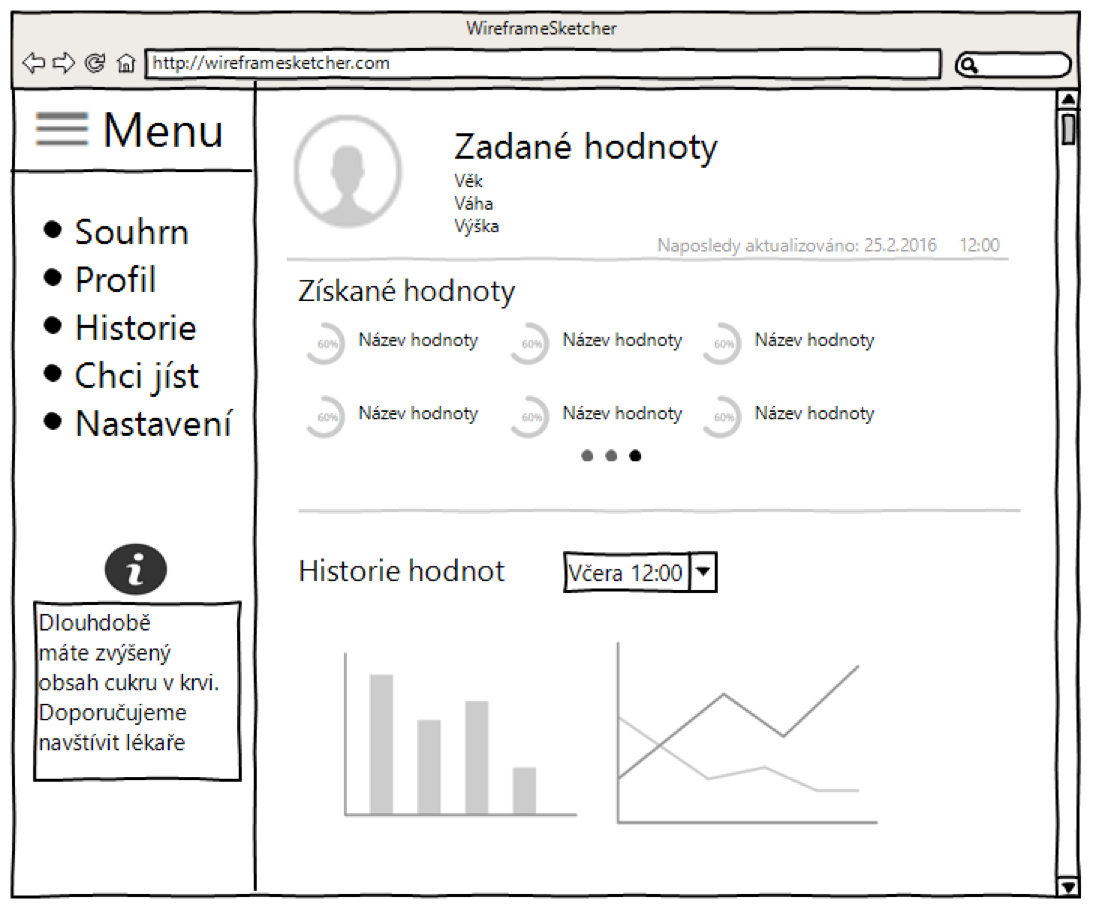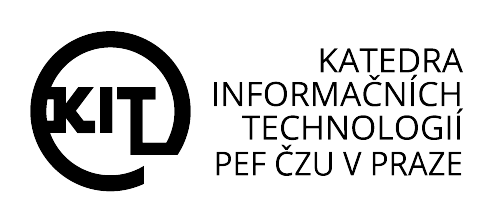As part of the diploma seminar, a student competition in prototyping applications on a given topic took place - Hackathon 2016.
A total of 5 teams took part in the competition, creating prototypes in the field of the Internet of Things. There were three more detailed circuits to choose from, from which the teams could choose the one closest to them, or combine them further:
- Agriculture and Smart Agriculture
- Quality of life
- Education and university life
More information about prototyping and the nature of the competition can be found in
separate article. The topic was announced at the start of the competition. All teams immediately started analyzing and designing their applications. They divided the work and started developing their prototypes. The task was not only to create the prototype itself, but also to come up with usage scenarios and present everything at the end of the event. The presentation took place in the presence of members of the commission, the head of the Department of Information Technologies, Ing. Jiří Vaňek, Ph.D. and Dean of the Faculty of Business Administration Ing. Martin Pelikán, Ph.D.
And what ideas were created as part of the Hackathon?
In the end, the individual teams covered all the circuits offered, and the basic concept of the proposed solutions is presented below.
Team Verge
Composition: Petr Kejda, Jakub Štěpán Novák This team chose a purely agricultural theme in the form of a smart vineyard. The application allows not only monitoring and analysis of values from the vineyard, but also from the cellar and stores. It connects everything to each other and enables better control, simplification and streamlining of activities.
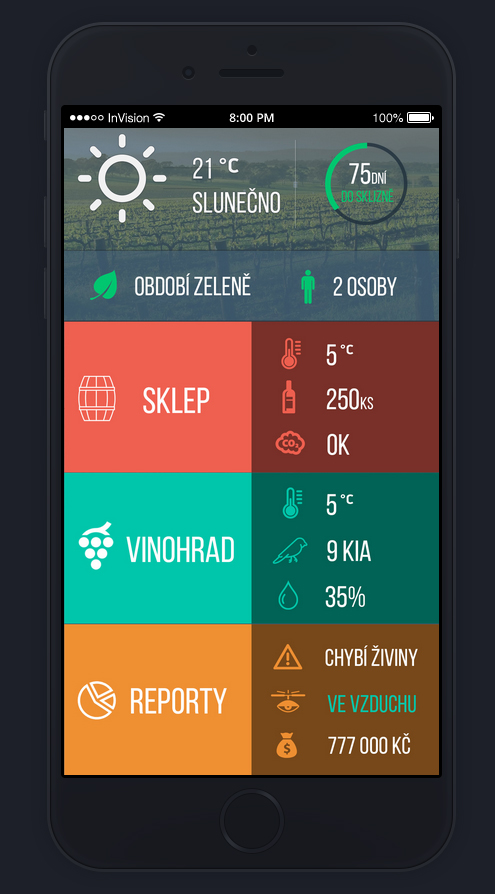
Team NODATA
Composition: David Franc, Michal Fišer, Václav Kindl Within the scope of Education and university life, the team threw themselves into improving the services of restaurant facilities with an application called SMART CULS RESTAURANNT. Its goal is to speed up and make services more accurate, thanks to the possibility of reserving tables and chairs, ordering, paying using an application, etc. The benefits for restaurants are mainly in better management and organization, an overview of guests, etc. In the framework of IoT, smart chairs and tables are key elements that they recognize occupancy and thus enable, for example, guest visits without a reservation, or even the application itself.
Team GreatSolution
Composition: Andrey Berest, Roman Boklah A single team, composed of 1st year students, started using smart bracelets and similar devices. The main purpose of the resulting application is to collect points for visiting various places (e.g. lectures, exercises, etc.). Subsequently, it is possible to collect rewards in the application - e.g. shopping at discounted prices, etc.
Team The A-team
Composition: Dzmitry Mikhliuk, Ondřej Masopust The usage scenario of this application is based on advanced smart measuring devices. They will monitor consumption in the home, send the data to the cloud, where it will be subsequently evaluated. Access to data is possible via a web interface or a mobile application. The advantage is saving energy, especially with the help of advice on where it is and how it can be achieved. An integral part is the possibility of consumption planning and device control.
Team Dragons
Composition: Tomáš Šebek, Ondřej Veverka The Health life application aims to monitor nutrition and physical activity. It is calculated, for example, with the use of blood analysis. The proposal integrates the use of many existing systems together, which until now work separately. Finally, the application can advise users on nutrition, compile menus, suggest recipes, shopping lists, etc.
And how did it turn out?
The results of the competition were announced together with the best works of graduates during the final evaluation of the seminar. All prototypes were of high quality. The evaluation was very balanced and it was not easy to choose one winner. The first three places were finally occupied by the teams:
- The A-team
- NODATA
- Dragons
In addition to diplomas, the award-winning students also received special scholarships
Operational economics faculty and valuable non-material prizes donated by the department, faculty and partners. For the main partner, the company
T-Mobile Czech Republic as, presented the prizes together with the head of the department and the dean of PEF, Mr. Ing. Vratislav Čermák, Ph.D., who also served as a member of the expert committee of the DP seminar. We thank all students for their participation and quality contributions. More about the graduate seminar in
separate report. In 2017, we anticipate holding the 2nd year of the competition.

